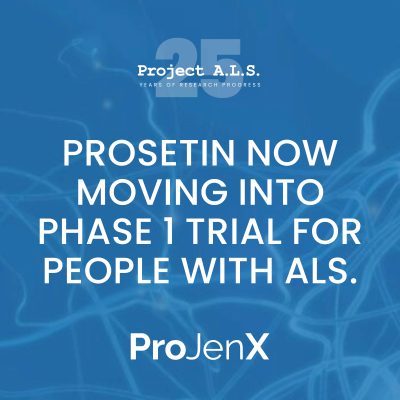Under the direction of Tom Maniatis, Ph.D. (Columbia University), the Project ALS Autophagy Team has made significant strides in its first year-and-a-half. The Project ALS Autophagy Team, the first and only collaborative effort of its kind, is studying new ALS genes and therapies, through the window of a cellular process known as autophagy.
Autophagy is big word for the cellular version of “taking out the garbage.” In ALS, Alzheimer’s, and Parkinson’s, brain cells build up with unwanted proteins. The guiding strategy of the Project ALS Autophagy Team is to understand the ways in which autophagy goes wrong in ALS—and rapidly test drugs we might use to regulate autophagy, particularly in motor neurons.
A gene called TBK-1 (among others), which is now known to play a role in both ALS and autophagy, has become a central focus of the Maniatis Lab and Autophagy Team study. “Project ALS has been instrumental in bringing together researchers with diverse expertise into a community that can tackle this problem from many angles,” says Hemali Phatnani, Ph.D (New York Genome Center & Columbia University).
The Autophagy Team is made up of heavy hitters, featuring Huntington’s autophagy expert Ai Yamomoto (Columbia), inventors of novel platforms for imaging autophagy, Noah Dephore (Cornell) and Steve Altschuler and Lani Wu (University of California, San Francisco), plus ALS geneticists and clinicians. Drugs identified by the Autophagy Team are fed in to the Pre-Clinical Core for ALS Drug Testing at the Motor Neuron Center (Columbia). Currently, the Pre-Clinical Core is testing four autophagy related drugs in ALS models.



